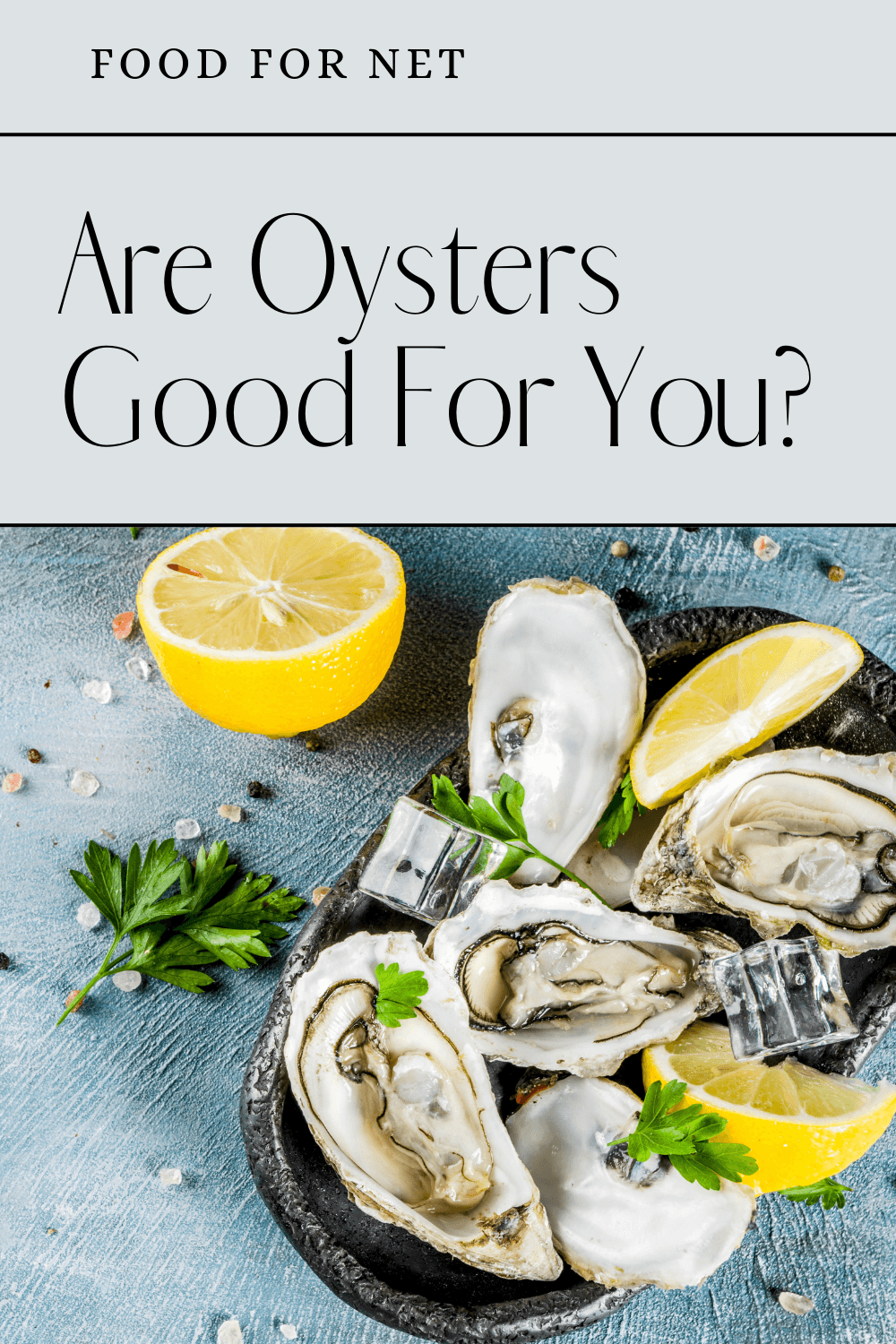
Some foods are universally loved, like chocolate. Oysters, on the other hand, tend to divide people. Some people love them, finding them to have a distinctive flavor and amazing texture. Others see them as a slimy animal that has nothing to offer at all. Still, this polarization isn’t all bad. It means that there are more oysters available for people who do love them. What about health benefits, then? Are oysters good for you?
Part of that question revolves around whether you’re eating oysters raw, cooked, or smoked, as raw oysters are much riskier than cooked ones. We also need to think about the nutrients and healthy fats that are found in oysters.
When you’re ready to enjoy oysters for yourself, why not try ordering them online? There are even oyster of the month clubs that will send oysters to you regularly. What could be better than that?
Are Oysters Good For You?
- What Are Oysters?
- Should You Eat Raw Oysters?
- Benefits Of Oysters?
- How Oysters Can Be Harmful
- Are Oysters An Aphrodisiac?
- Who Should Avoid Oysters?
- How To Cook Oysters
- Are Oysters Keto Friendly?
- Final Thoughts
What Are Oysters?
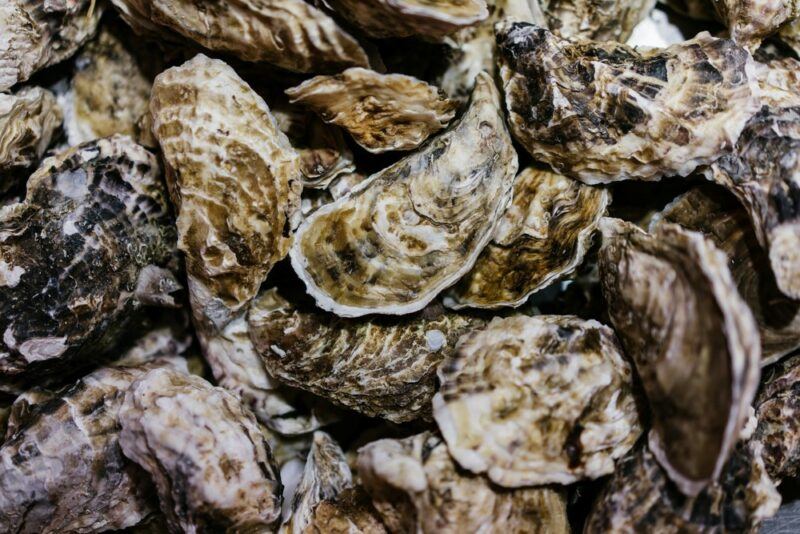
Oysters are considered mollusks, as they come from the Mollusca phylum. Other members of this group include mussels, clams, and cockles. While we often assume that there is just one type of oyster, but there are actually five different species and more than 100 individual varieties.
The types of oysters vary in their shells and where they are found. European Flat Oysters, for example, have a straight shell that contains fine ridges. Kumamoto oysters, on the other hand, are smaller, with a shell that is pale and round.
Despite these differences, the types of oysters have similar nutritional profiles, so you should see the same benefits, regardless of the type of oyster that you choose.
Interestingly, the flavor of your oysters can vary depending on the time of the year. This is partly because it’s harder to keep them cool in the summer months, which means that they don’t stay as fresh.
Flavor differences remain even if your oysters are fresh though, due to differences in seasonal spawning patterns. If you love oysters, look for them in the winter. This is when they’ll taste the best.
It’s also worth noting that while oysters are categorized as shellfish, they’re quite different than crustaceans, like shrimp and crab. Indeed, we often place marine life in broad categories, even though there are many differences between the various types.
Interestingly, oysters are one of the most ethical seafood choices as well, as they’re highly sustainable. They even filter the water, creating positive rather than negative changes to their environment.
Should You Eat Raw Oysters?

Before we talk too much about oysters themselves, let’s get this pressing question out of the way – should you eat raw oysters?
The advice for most meat and seafood is clear, that you should always cook it before you eat it. Doing so kills any harmful bacteria and may be critical if you’re vulnerable in any way.
Even if you’re in the prime of your life, eating raw meat or seafood always carries some risk. Oysters are tricky, as there’s such a long tradition of eating them raw. Many people have done so with no issues at all or perhaps they just experienced some mild food poisoning every once in a while.
Despite tradition, eating oysters raw isn’t a smart move at all. One problem is vibriosis, which is caused by Vibrio bacteria in the oysters. This bacteria is more often present during spring and summer, but can be there at any time of the year.
You can’t tell whether or not there is any bacteria present, as the oyster will smell, look, and taste the same either way. The biggest indication is whether you get sick or not (which is an awful way to find out).
Truly. Even if you eat oysters regularly – you can’t use your senses to work out with an oyster is safe or not.
Some companies treat their oysters before selling them. Such processes can decrease the risk of Vibrio bacteria. Even so, treated oysters may still contain some Vibrio bacteria, along with other dangerous microbes.
Similarly, choosing oysters harvested from clean water won’t help either, as the bacteria can be present even when the water is completely clean.
The only way to keep yourself safe is to avoid raw oysters entirely.
Also, to be clear, we’re not talking about minor infections either. According to CDC estimates, around 80,000 people are infected with the bacteria and 100 people per year die from this infection.
Why take the risk?
Benefits Of Oysters
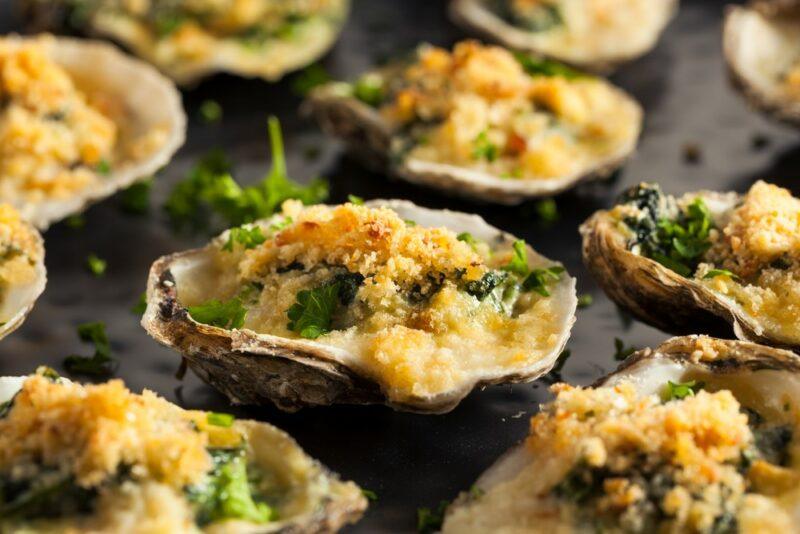
All Of The Nutrients
Shellfish are often fantastic for nutrients and oysters are no exception. There are some critical nutrients present, starting with vitamin B12.
You actually get more than 250% of your daily vitamin B12 intake from six medium oysters. This vitamin is important in the creation of new cells, particularly red blood cells.
Selenium is another critical vitamin. This is relevant for your metabolism, thyroid, and immune system. You get incredible amounts of zinc and copper in oysters too, along with decent amounts of vitamin D and iron.
The nutrient balance is incredible, especially as oysters are relatively low in calories. In fact, a 3.5 ounce serving of oysters contains roughly 70 calories, making oysters a nutrient-dense food.
Each of these nutrients plays a variety of roles in your health. Getting too little of any of them can mean that your body doesn’t have the resources that it needs to function well. This often leads to side effects. For example, selenium deficiency can result in mental fog and muscle weakness.
That’s not all. Some nutrients in oysters have antioxidant effects. This means they help to fight oxidation in your body, reducing the risk of some diseases.
A Source Of Omega 3 Fatty Acids
Omega 3 fatty acids are famous. They’re the reason that we’re told to get fish in our diet regularly. Omega 3s are particularly relevant for decreasing heart disease risk, by improving many risk factors, including triglyceride levels, blood pressure, and cholesterol.
Fatty fish like sardines, tuna, and salmon are well-known for their omega 3 content, but oysters are just as good. This is a fantastic effect for anyone who loves oysters and isn’t a huge fan of fish.
May Promote Brain Health
The vitamin B12 in oysters is sometimes linked to improved brain health. Indeed, being deficient in the nutrient could increase your risk of conditions like depression and dementia – so keeping up with vitamin B12 is essential for maintaining a sharp mind.
The omega 3s in oysters can help with brain health as well, which helps matters even more.
A Decent Source Of Protein
Oysters provide you with a decent amount of protein, roughly 7 grams in a 100 gram serving. Plus, we’re talking about high quality protein, so you’re getting plenty of important amino acids.
Protein is used throughout your body, helping to build and repair tissues, promote the correct fluid balance, and coordinate bodily functions. Most of us already get a decent amount of protein, but higher protein intakes can be relevant if you’re trying to lose weight or gain muscle.
The protein content here is lower than in animal products, like chicken and red meat, but oysters tend to be lower in fat and are a decent source of omega 3 fats. This balance makes them much better for your health (especially when compared to fatty cuts of red meat).
Provides Other Health Benefits Too
The combination of nutrients and omega 3 fatty acids mean that oysters may provide many health benefits. We’ve already mentioned improvements to your heart and brain health. Other examples include more energy, due to the vitamin B12, improved bone health, mood improvements from the zinc, and a boost to your immune system.
The effect on your immune system could help to increase your ability to fight off infections, which is always a good thing.
How Oysters Can Be Harmful
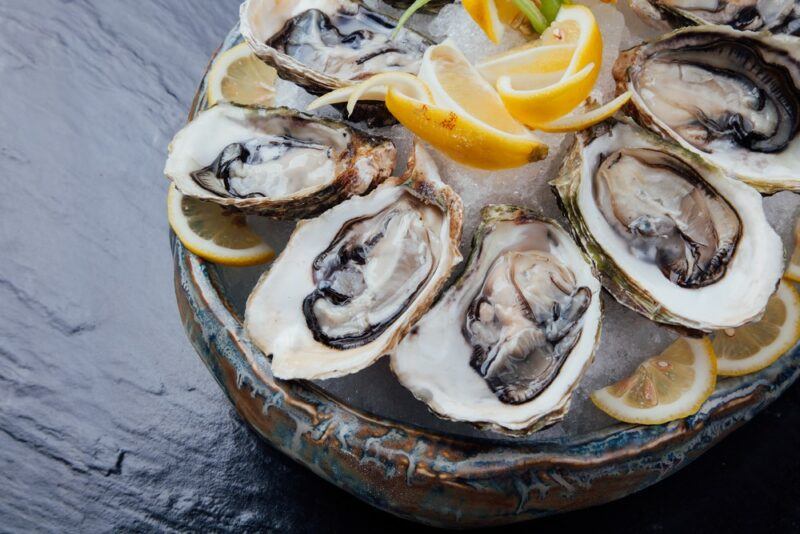
The biggest concern with oysters comes from eating them raw. However, this isn’t the only thing to think about, as oysters can be problematic in other ways too.
They May Be Undercooked
Buying oysters at a restaurant or eating them as part of a buffet is always a bit of a gamble. You can never be certain that the oyster is fully cooked and hasn’t been contaminated.
As a result, you could easily end up with food poisoning. Far too many people have had an evening out ruined by this exact problem.
To keep yourself safe, make sure that you trust the person or restaurant that prepared the oysters. If you’re eating out, you might even look up reviews beforehand. This would make it easy to see whether anyone ended up with food poisoning after ordering oysters.
Their Mercury Content
We can’t talk about seafood without mentioning the mercury issue. Too much mercury can lead to some serious health problems, including damage to our kidneys and nervous system.
To avoid this, we need to choose seafood carefully. This includes focusing on low mercury species and limiting the amount that we consume each week.
Oysters fall somewhere in the middle when it comes to mercury. They’re not one of the concerning types, like tuna, which can contain around 0.600 ppm of mercury, if not more. Instead, oysters often contain around 0.012 ppm, with some measurements going up to 0.25 ppm.
These levels mean that oysters shouldn’t be a problem most of the time, but you do still need to be careful. Even if you’re sticking to low mercury types of seafood, eating too many servings per week can still lead to issues.
Most recommendations suggest sticking between two and three servings of seafood per week. This should give you the most benefits without raising your mercury levels too high.
Nutrient Toxicity
Oysters are exceptionally high in a few important minerals, including zinc and selenium. While this is mostly a good thing, it does increase the risk of having too much of these minerals.
There’s the risk that doing so could make you sick. For example, excessive selenium intake can lead to fever, brittle hair, and nausea, while too much zinc can lead to headaches, decreased immunity, and stomach cramps.
Most people should be fine with the nutrient levels in oysters. Still, it’s important to pay attention if you’re taking supplements or have a very nutrient rich diet.
Are Oysters An Aphrodisiac?

Oysters are famous for their ability to get you in the mood. They’ve been used that way since the Roman Empire. But, how true is the claim?
The answer is complicated.
Oysters do contain some amino acids that are thought to increase sexual desire. Some of the nutrients could be relevant too, particularly zinc, which is linked to sexual function.
Despite this, there’s no solid evidence showing that oysters increase sex drive. For that matter, the whole aphrodisiac thing is a bit of a myth. It’s not clear whether any foods actually boost libido. And, if any do, the effect is likely to be long-term and subtle.
Still, there’s no need to write oysters off just yet.
Human sexuality is complicated and is driven by our brains more than any other part of our body. Because of this, the sensuality of eating oysters, paired with the fact that we expect them to be an aphrodisiac means that sometimes they will have that effect.
Who Should Avoid Oysters?
Most people can eat fully cooked oysters without an issue. However, some groups of people are more vulnerable to infection than others, including anyone aged 65 or above, people who have had stomach surgery, anyone with HIV, liver disease, cancer, or diabetes, and people receiving immune-suppressing therapy.
If you fall into any of these groups, you need to be ultra-cautious with oysters (or avoid them entirely). One of the best tricks is to only eat oysters that you’ve cooked yourself. This way you can be certain that there are no issues.
How To Cook Oysters
While raw oysters remain popular, there are also plenty of delicious ways to cook them, like cooking shucked oysters on the grill. This approach only takes around five minutes. You can add some herbs and a little butter to the oysters while they’re cooking to boost their flavor.
Fried oysters are another popular treat. These are fully shucked, then coated and fried. When prepared correctly, you end up with tender oysters inside a crisp shell.
Broiling or roasting oysters are other options that work very well indeed. There are also plenty of recipes that use oysters as an ingredient, like an oyster stew, smoked oyster pate, or even an oyster casserole.
Are Oysters Keto Friendly?
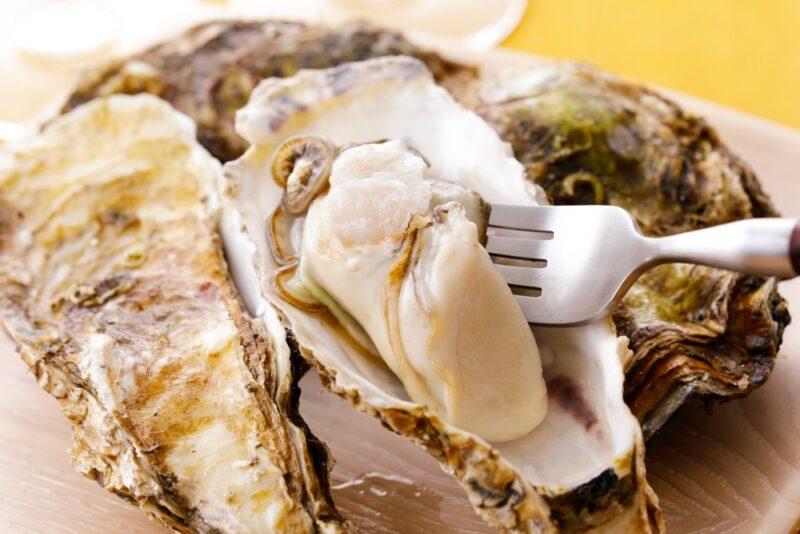
There’s a surprising amount of debate about whether you can eat oysters when following keto. Some people are concerned about the carb content, especially as many other types of seafood and meat contain barely any carbs at all.
However, many people say yes, you can still enjoy oysters on a keto diet. You’ll find plenty of recipes like keto fried oysters that seem to prove that point.
After all, you don’t get that many carbs per oyster. One estimate suggests that you’re just getting 4 grams of carbs per 100 grams of oysters. That’s not much to begin with. It’s even less when you realize that oysters often weigh less than 10 grams each.
Estimates of carb content vary, but most suggest that you’re getting some carbs in oysters, just not a huge amount. This should mean that you can include oysters on a keto diet, as long as you’re careful with your portions.
Final Thoughts
Oysters are fantastically healthy. They’re a rich source of omega 3 fatty acids and provide you with plenty of nutrients. They’re even relatively low in carbs, so you can fit them on a keto diet.
Oysters are low risk as well and pose few health issues, as long as they’re fully cooked. Raw and undercooked oysters are a different story entirely. These can easily make you sick and may even be fatal in rare cases.
Despite popular myths, you can’t actually tell whether oysters are safe or contaminated by their taste or appearance, so it’s always best to stick to the fully cooked ones. After all, while raw oysters are popular, they’re not good enough to justify making yourself seriously ill.
Frequently Asked Questions
Can Pregnant Women Eat Oysters?
Cooked oysters are still viable if you’re pregnant. They could even be helpful, as oysters are rich in nutrients that help both you and your baby.
However, you need to be very careful with your mercury intake. Stick to no more than three servings of oysters per week. You may need to drop this down further if you’re consuming other seafood as well.
Raw oysters are a different story. There’s always the potential for parasites and bacteria, which can be incredibly dangerous if you’re pregnant. Because of this, it’s essential that all oysters are fully cooked before you consume them. If you’re not sure, it’s best to skip the oysters entirely and look for something safer.
Do You Chew Oysters?
Some people choose to swallow the entire oyster whole, but this isn’t essential (seriously, you can eat your food however you want to!). Many people tip the oyster into their mouth and then chew it a couple of times before swallowing.
Doing so makes more sense anyway, as this is how you get the full flavor of the oyster. You miss a lot if you choose to simply swallow the oyster as-is.
Are Oysters High In Cholesterol?
Some types of shellfish are surprisingly high in cholesterol. Shrimp is particularly concerning, coming in at 57 mg of cholesterol in a three ounce serving.
Oysters are much better, with just 27 mg of cholesterol for the same serving size. This puts them in the low cholesterol category and means you don’t need to be as concerned.
Also remember that the cholesterol in your diet doesn’t define your blood cholesterol levels (because your body makes cholesterol itself as well). This means that cholesterol in food isn’t as big of a deal as we once thought.
When Should You Not Eat Oysters?
Conventional wisdom suggests that you should only consume wild oysters in the cooler months, as the risk of food poisoning is much higher when the weather is warmer and it’s too easy for the oysters to spoil.
Some people use the months as a rule of thumb guide, saying that you should only eat oysters in months that contain an ‘r’. This gives you a window of September through to April to enjoy your oysters (of course, you’ll need to follow a different rule in the southern hemisphere).
Modern oyster farming practices have made oysters much safer, so it’s now often safe to eat them in the summer. However, the flavor may still be better in the cooler months.
It’s also important to pay attention to the company that supplies your oysters. Make sure that they’re reliable and focus on safe practices.
Are Oysters Good For Your Heart?
Oysters contain some cholesterol, but this doesn’t make them bad for your heart. Quite the opposite.
The omega 3s in oysters are part of the equation, as these promote positive heart health, while reducing your risk of a heart attack. Oysters also offer plenty of powerful nutrients that promote heart health as well, such as potassium and magnesium.

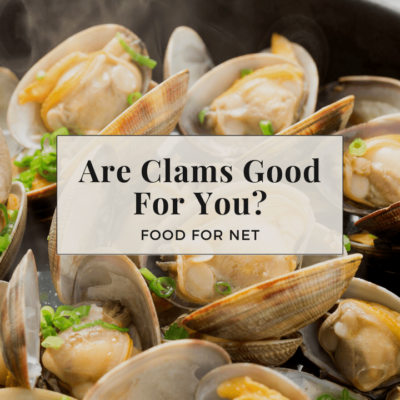



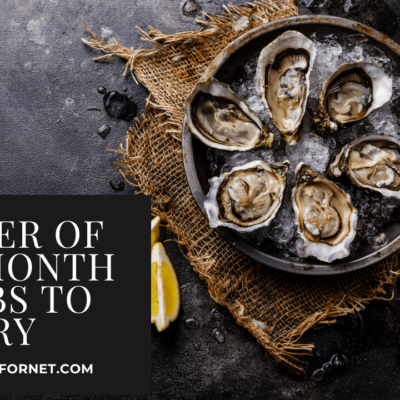






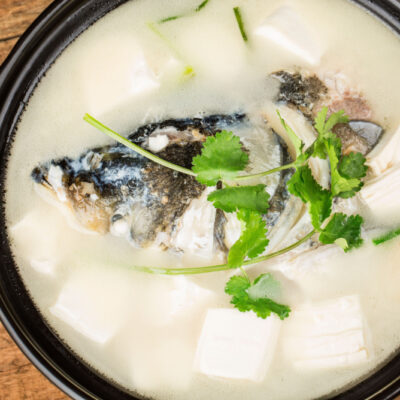

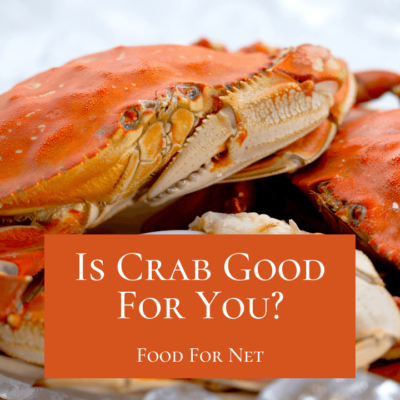


 The Best Vodka For Limoncello
The Best Vodka For Limoncello
Leave a Reply